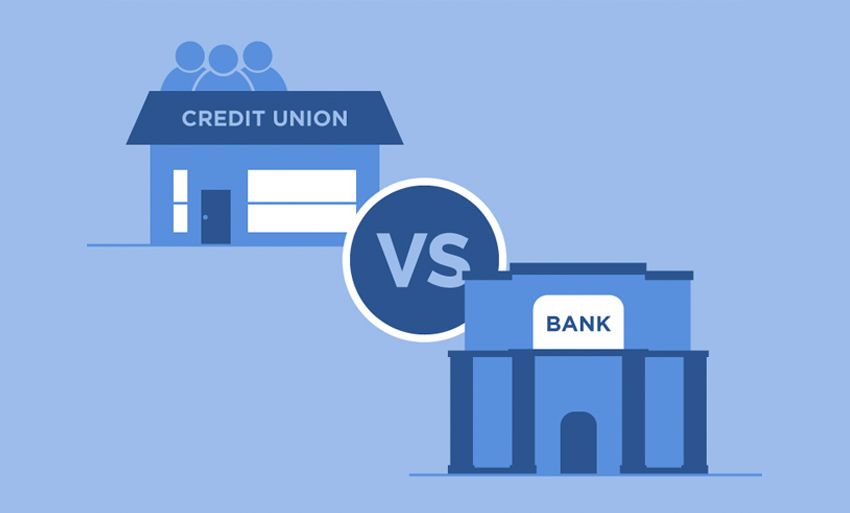Supercharge Your Money: Unlock the Full Potential of Credit Unions

Table of Contents
1) Introduction: The Power of Credit Unions
2) Credit Unions vs Banks Understanding the Key Differences
3) The Advantages of Credit Unions Over Traditional Banks
4) Credit Unions vs Banks vs Savings Accounts: Which is Right for You?
5) How Do Credit Unions Make Money? Unraveling the Mystery
6) Self-Help Federal Credit Union: Empowering Communities
7) Finding Self-Help Credit Union Locations: A Convenient Solution
8) Conclusion: Unleashing the Full Potential of Credit Unions
Introduction: The Power of Credit Unions
In today's fast-paced world, managing our finances efficiently and effectively is essential. We all want to make smart choices that supercharge our money and unlock its full potential. When it comes to managing your finances, have you ever considered the benefits of credit unions? In this blog post, we dive deep into the world of credit unions, exploring their advantages, dispelling common misconceptions, and revealing how they can help you achieve your financial goals. Whether you're comparing credit unions to banks or want to learn more about self-help federal credit unions, this comprehensive guide will provide you with the insights you need to make informed financial decisions.
Credit Unions vs Banks: Understanding the Key Differences
Before we delve into the benefits of credit unions, it's important to understand the key differences between credit unions and traditional banks. While both financial institutions offer similar services, such as checking and savings accounts, loans, and credit cards, their fundamental structures and priorities set them apart.
The Cooperative Advantage
Unlike banks, credit unions operate as member-owned cooperatives. As a result, you are also part owner when you become a member of the credit union. This cooperative structure allows credit unions to prioritize their members' needs, offering better interest rates, lower fees, and personalized customer service.
Community Focus
Credit unions also tend to have a strong community focus. They often serve specific communities, whether geographical or based on a specific occupation or field. This community-centric approach fosters a sense of trust and allows credit unions to tailor their products and services to better suit the needs of their members.
Decision-Making Process
Another noteworthy difference between credit unions and banks lies in their decision-making process. Credit unions are governed by a board of directors elected by their members, ensuring that decisions are made with the best interests of their members at heart. Banks, on the other hand, are typically driven by profit and beholden to shareholders.
Stand out from your competitors by presenting invoices with a unique and professional appearance.
Invoice Temple is the ultimate invoicing solution designed exclusively for entrepreneurs.
Access a diverse selection of invoice templates that cater to different business needs and enhance your brand image.
Sign up and enjoy invoicing for free.
Available on google play store for android and PCs.

The Advantages of Credit Unions Over Traditional Banks
Now that we've grasped the fundamental differences between credit unions and banks, let's explore the unique advantages credit unions offer. By understanding these benefits, you can make an informed decision about whether credit unions are the right financial institution for you.
Better Interest Rates
One of the top reasons people turn to credit unions is their ability to offer better interest rates. Since credit unions prioritize their members, they can often provide higher interest rates on savings accounts and lower interest rates on loans, including mortgages and auto loans. By taking advantage of these better rates, you can maximize your savings and reduce your debt faster.
Lower Fees
Fees can quickly eat into your hard-earned money. Unlike banks that rely on fees to boost their profits, credit unions strive to keep fees low. From monthly maintenance fees to overdraft fees, credit unions often offer more cost-effective solutions, ensuring that you can keep more money in your pocket.
Personalized Customer Service
One of the most significant advantages of credit unions is the personalized customer service they offer. As credit unions prioritize their members, they often take the time to understand their unique financial needs and goals. This personalized approach can lead to tailored advice, customized product offerings, and a sense of community you won't find at traditional banks.
Stronger Community Connections
In the communities in which they serve, credit unions have a great deal of roots. They aim to foster financial stability, support local businesses, and actively engage in community development. By banking with a credit union, you can contribute directly to the growth and well-being of your community, helping to create a more prosperous future for all.
Credit Unions vs Banks vs Savings Accounts: Which is Right for You?
Now that we've explored the advantages of credit unions over traditional banks, how do savings accounts fit into the equation? When it comes to deciding between credit unions, banks, and savings accounts, it's important to consider your individual financial goals and needs.
The Convenience of Savings Accounts
Savings accounts, offered by both banks and credit unions, provide a safe and secure way to save money while earning interest. Banks often offer a wide range of savings account options, providing various interest rates and features. Credit unions, on the other hand, may offer competitive interest rates and additional perks, such as dividends or profit-sharing for members. By comparing the options available, you can determine which savings account aligns with your financial objectives.
Making the Choice
When choosing between credit unions and banks, it's crucial to evaluate your priorities. If you value personalized customer service, better interest rates, and lower fees, credit unions may be the optimal choice for you. However, if convenience, accessibility, and a diverse range of financial products are more important, banks may better suit your needs. Ultimately, the decision rests on your individual financial goals and values.
How Do Credit Unions Make Money? Unraveling the Mystery
You may be wondering: if credit unions aim to provide better interest rates and lower fees, how do they make money? The answer lies in the business model and underlying principles upon which credit unions operate.
Member Deposits and Loans
Credit unions generate income primarily through member deposits and loans. When members deposit money into their accounts, credit unions can use these funds to provide loans to other members. As a member, your deposits contribute to the overall funds available for lending, creating a mutually beneficial ecosystem.
Community Investments
Credit unions also support their communities by investing in local businesses and community development initiatives. By directing funds towards these endeavors, credit unions contribute to economic growth and help create a thriving local ecosystem.
External Partnerships
In certain cases, credit unions may enter into partnerships with external organizations to expand their service offering. These partnerships can range from collaborations with other credit unions to strategic alliances with financial technology companies. These partnerships provide credit unions with additional avenues for growth and income generation.
Self-Help Federal Credit Union: Empowering Communities
Self-Help Federal Credit Union is a prime example of a credit union that is dedicated to empowering communities across the United States. With a mission to create and protect ownership and economic opportunity for all, Self-Help Federal Credit Union strives to make a positive impact on the lives of its members.
Commitment to Financial Inclusion
Self-Help Federal Credit Union champions financial inclusion, ensuring that all individuals, regardless of their background or circumstances, have access to the financial resources and services they need. By providing affordable banking products, such as low-cost loans and accessible savings accounts, Self-Help Federal Credit Union helps to level the playing field and create opportunities for all.
Socially Responsible Investing
As part of their commitment to social impact, Self-Help Federal Credit Union engages in socially responsible investing. They direct their members' deposits and investments toward initiatives that align with their values, including affordable housing, clean energy, and small business development. By banking with Self-Help Federal Credit Union, you can be confident that your money is making a difference in the world.
Finding Self-Help Credit Union Locations: A Convenient Solution
If you're eager to join Self-Help Federal Credit Union or find the nearest self-help credit union locations, the process is straightforward and convenient.
1) Visit the official Self-Help Federal Credit Union website.
2) Navigate to the branch or locations page.
3) Enter your zip code or select your state to find self-help credit union branches near you.
4) Access contact information, operating hours, and directions to the branches.
With multiple branches across the United States, finding a Self-Help Federal Credit Union location that serves your community has never been easier.
Conclusion: Unleashing the Full Potential of Credit Unions
Throughout this guide, we've uncovered the power of credit unions in supercharging your money and unlocking its full potential. By choosing credit unions over traditional banks, you gain access to better interest rates, lower fees, personalized customer service, and stronger community connections. When deciding between credit unions and banks, evaluating your financial priorities is crucial. If you value the unique advantages credit unions offer, such as community-focused initiatives and member-driven decision-making processes, credit unions may be the perfect fit for you.
Whether you opt for Self-Help Federal Credit Union or explore other credit unions in your local area, keep in mind the positive impact your choice can have on your finances and your community. By aligning your banking needs with institutions that share your values, you not only unlock the full potential of credit unions but also contribute to a more equitable and sustainable future.
Supercharge your money today by harnessing the untapped potential of credit unions. Join the credit union movement and experience the financial empowerment and community-focused approach that credit unions offer.
Also Read...




